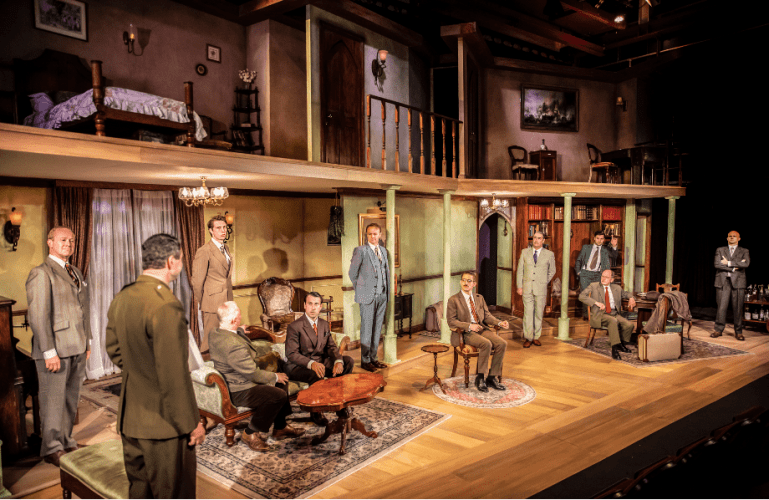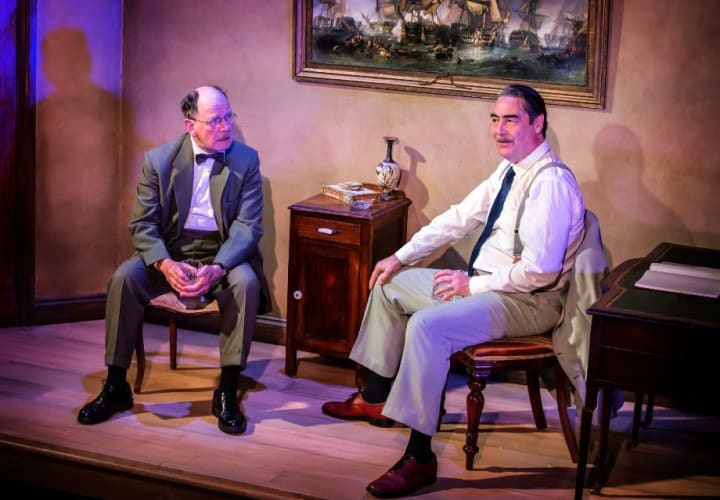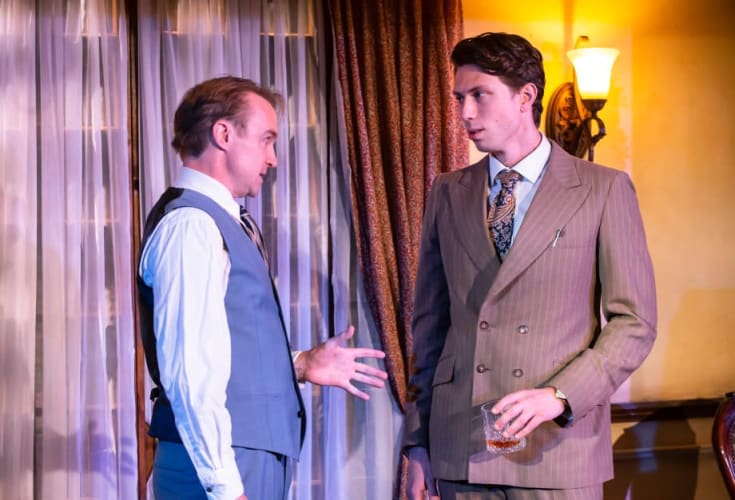Science is never neutral. It is always tied to a political moral context, and those employed as scientists inevitably play a part, if only passively, in the consequences of that context.
Alan Brody explores this in a dramatised account of the 1945 internment of German nuclear scientists at Farm Hall in England, where their conversations were secretly recorded in the hopes of finding out how close Germany had come to developing nuclear weapons.
Ten smartly dressed prisoners arrive at the light, impressive double-level set designed by Janie Howland, to be greeted by Major Rittner (Simon Bubb), who explains the meal schedule and the limits to their freedom. Initially, their conversations concern their irritation with each other and their dissatisfaction with the way they are being treated by their captors.
Almost all of them had continued to work for the Nazi regime, a number had joined the Nazi party, and only the Nobel prize winner Max von Laue (Simon Chandler) openly opposed Hitler, even though he remained in Germany during the war.
In a brief, moving scene, he is the first of the group to be told of the American nuclear bombing of Hiroshima. He is instantly shocked by the number of people it must have killed, and in tears, he says he “will never be alright after this.”
In contrast, when the entire group are told, they are more concerned that America beat them to it and whether they will now be “regarded as second rate.” Appalled, Otto Hahn (Nathaniel Parker) walks out of the room, later telling another of the group how disgusted he is that none had a word to say about those killed by the bomb.
Meanwhile, the senior member of the group, Werner Heisenberg (Gyuri Sarossy), when not playing pleasant tunes on a piano, seems anxiously keen to work out the error in his calculations which meant he didn’t beat the Americans to the nuclear discovery. Another of the group suggests this is just to convince the Americans that he was secretly working against the Nazi regime.
Along with the rest of the group, who seem focused on their reputation and post-war jobs, he signs a memorandum claiming they were working on a generator rather than a bomb.
Although the play doesn’t really have the pull of a central dramatic tension or a complex developing character, it is always interesting, and, particularly in the second half, raises important issues about the complicity of the scientists in the horrors of fascism.
This is expressed most powerfully in a letter we hear from the scientist Lise Meitner to Otto Hahn, whom she had worked with before she fled Germany to escape Nazi persecution.
She writes that, “you all worked for Nazi Germany and at best offered only a passive resistance... (as) millions of innocent human beings were allowed to be murdered without any kind of protest being uttered”.


